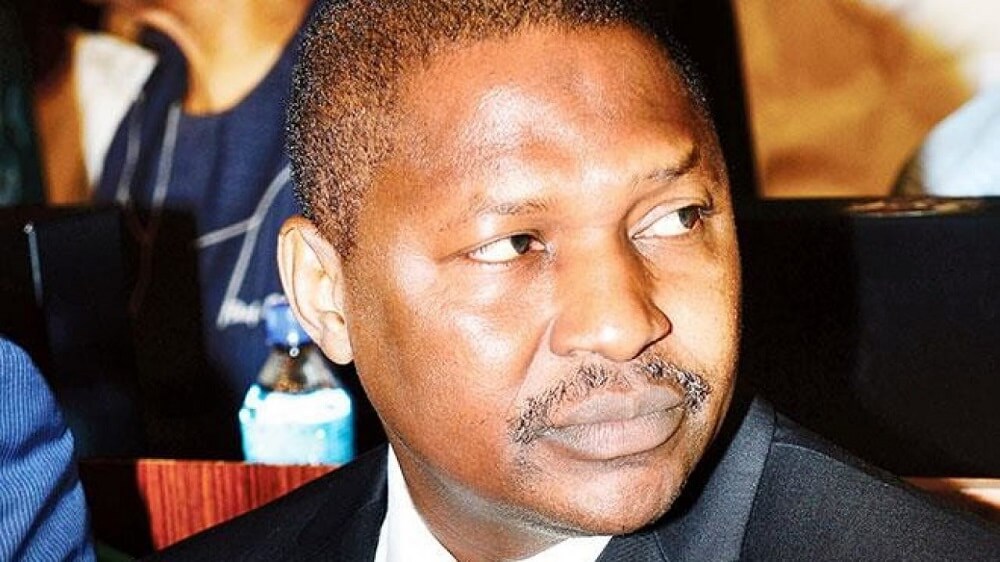Assets Recovery: Malami Reacts To Allegations Of ‘Unlawful’ Interference In EFCC
The Attorney General of the Federation and Minister of Justice, Abubakar Malami, SAN, on Tuesday, has said that his office is constitutionally empowered to “make rules or regulations with respect to the exercise of any of the duties, functions or powers” of the Economic and Financial Crimes Commission (EFCC), including asset disposal.
He said he needed to make the clarification because some people think that the establishment of the Inter-Ministerial Asset Disposal Committee by his office, is an attempt to overrun the EFCC.
Advertisement
“Attorney General of the Federation and Minister of Justice, Abubakar Malami, SAN acted in compliance with the extant laws including the provisions of Economic and Financial Crimes Commission (EFCC) Establishment Act 2004 in setting up the recently inaugurated Inter-Ministerial Asset Disposal Committee.
“According to the statement community reading of the provisions of Section 31(1-4) and Sections 43 of the EFFC establishment Act 2004 will not only justify the action of the Minister but also clear doubts on the misconceived and shallow legal analysis in the public space on the legality or otherwise of the committee.
“The statement noted that lack of understanding of the law was imminent in the wrong impression being created which was fueled by the faulty assumption that only the EFCC is engaged in asset recovery and forfeiture proceedings. Hence the challenge to the setting-up and mandate of the Committee,” he said as quoted in a statement by his Spokesperson, Dr. Umar Jibrilu Gwandu.
Malami further explained that all aspects of criminal prosecution, which the EFCC also undertakes, is under his supervision.
Advertisement
“In issuing Regulations and Setting-up Committee for Asset Disposal, the Attorney-General of the Federation was guided, amongst other statutory provisions, by the wordings of Sections 31(4) & 43 of the EFCC Act which confers the Attorney-General of the Federation with the powers to make Rules or Regulations with respect to the exercise of any of the duties, functions or powers of the EFCC (inclusive of asset disposal).
“It is elementary law that the process of asset forfeiture and disposal constitutes part and parcel of criminal prosecution. It is also trite law that all prosecuting agencies derive their powers to prosecute from that of the constitutional and statutory powers of the Attorney General of the Federation.
“The powers of the EFCC is constitutionally subject to the overriding powers of the Attorney-General of the Federation,” he said.
As such, he maintained that any attempt to derail or distract federal government’s anti-corruption fight will not work.
The statement partly reads:
Advertisement
“It is important to note that asset forfeiture and disposal is a continuation of criminal proceedings and in furtherance of the powers conferred on the Hon. Attorney General of the Federation under Section 150(1) of the 1999 Constitution (as amended) as the Chief Law Officer of the Federation, Section 174(1)(b) of the 1999 Constitution (as amended) grants him the exclusive power “to take over and continue any such criminal proceedings that may have been instituted by any other authority or person;”
“The Hon. Attorney General of the Federation is therefore on firm legal grounds to regulate the process of asset forfeiture and disposal from the EFCC or any other agency. The Ministries or Departments of Justice worldwide exercises similar powers of asset recovery, forfeiture, management and disposal.
“Whilst the Constitution has provided some safety nets on the above incontestable position by providing that the Attorney General shall have regard to public interest, the interest of justice and the need to prevent abuse of legal process in exercising his powers, the foregoing still remains the Attorney General’s call to make.
“It is not in doubt that disposal of forfeited assets is in the best interest of the public and justice. The Attorney General has a total responsibility to control and manage the conduct of criminal prosecutions.
“While the Committee will not be tied down by these needless distractions, it remains open to positive suggestions.”



